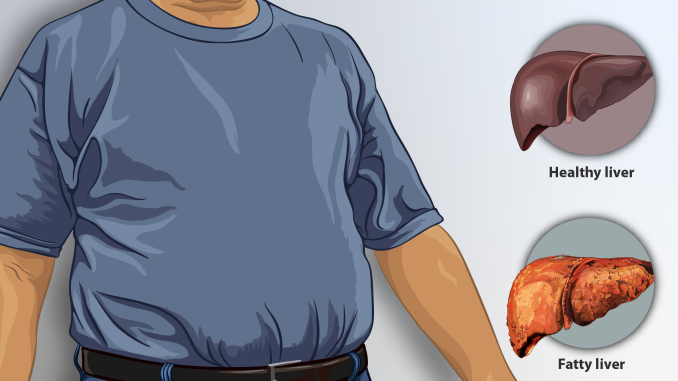
The liver is a vital organ that plays a crucial role in detoxifying the body. It filters toxins and other harmful substances from the bloodstream, converts them into less harmful compounds, and eliminates them from the body. However, if the liver becomes overloaded with toxins, it may not function properly, which can lead to various health problems. In this article, we will discuss 6 signs that your liver is full of toxins.
1. Fatigue and weakness:
One of the most common signs of liver problems is fatigue and weakness. The liver is responsible for producing glucose, which is essential for providing energy to the body. However, when the liver becomes overloaded with toxins, it can affect its ability to produce glucose, leading to a feeling of fatigue and weakness. Additionally, toxins can also damage liver cells, leading to a decrease in the production of energy.
2. Jaundice:
Jaundice is a condition characterized by yellowing of the skin and eyes. It occurs when the liver is unable to remove bilirubin properly, a waste product that is produced when red blood cells break down. Normally, the liver processes bilirubin and eliminates it from the body. However, when the liver becomes overloaded with toxins, it can impair its ability to process bilirubin, leading to its accumulation in the bloodstream and causing jaundice.
3. Abdominal pain and swelling:
When the liver becomes enlarged due to toxins, it can cause discomfort in the abdomen. Abdominal pain and swelling are common symptoms of liver problems, as the liver is located in the upper right part of the abdomen. The enlargement of the liver due to toxins can also put pressure on other organs, leading to further discomfort and pain.
4. Dark urine:
Another sign that your liver may be full of toxins is dark urine. When the liver is functioning properly, it processes waste products and eliminates them from the body in the form of urine. However, when the liver becomes overloaded with toxins, it can impair its ability to process waste products, leading to the accumulation of waste products in the bloodstream and causing dark urine.
5. Nausea and vomiting:
Nausea and vomiting are common symptoms of liver problems, as the liver plays a crucial role in digesting food. When the liver becomes overloaded with toxins, it can impair its ability to digest food, leading to nausea and vomiting. Additionally, toxins can also cause inflammation of the liver, leading to further digestive problems.
6. Changes in bowel movements:
When the liver is not functioning properly, it can lead to changes in bowel movements, such as constipation or diarrhea. The liver produces bile, which helps in the digestion of fats. However, when the liver becomes overloaded with toxins, it can affect its ability to produce bile, leading to changes in bowel movements.
It’s important to consult with a healthcare professional if you experience any of these symptoms or suspect that you may have liver problems. They can perform tests to determine the cause of your symptoms and recommend appropriate treatment options.
In addition to these symptoms, there are several risk factors that can increase the likelihood of developing liver problems. These include:
- Alcohol consumption: Drinking excessive amounts of alcohol can cause liver damage and increase the risk of liver disease.
- Hepatitis: Hepatitis is a viral infection that can cause inflammation of the liver, leading to liver damage and disease.
- Obesity: Being overweight or obese can increase the risk of developing liver disease, as it can lead to the accumulation of fat in the liver.
- Diabetes: Diabetes is a metabolic disorder that can increase the risk of liver disease.
- Exposure to toxins: Exposure to toxins, such as chemicals and pollutants, can damage the liver and increase the risk of liver disease.
- Family history: Having a family history of liver disease can increase the risk of
Share this:
- Click to share on Facebook (Opens in new window)
- Click to share on Twitter (Opens in new window)
- Click to share on WhatsApp (Opens in new window)
- Click to share on Reddit (Opens in new window)
- Click to share on Telegram (Opens in new window)
- Click to share on Pinterest (Opens in new window)
- Click to share on LinkedIn (Opens in new window)